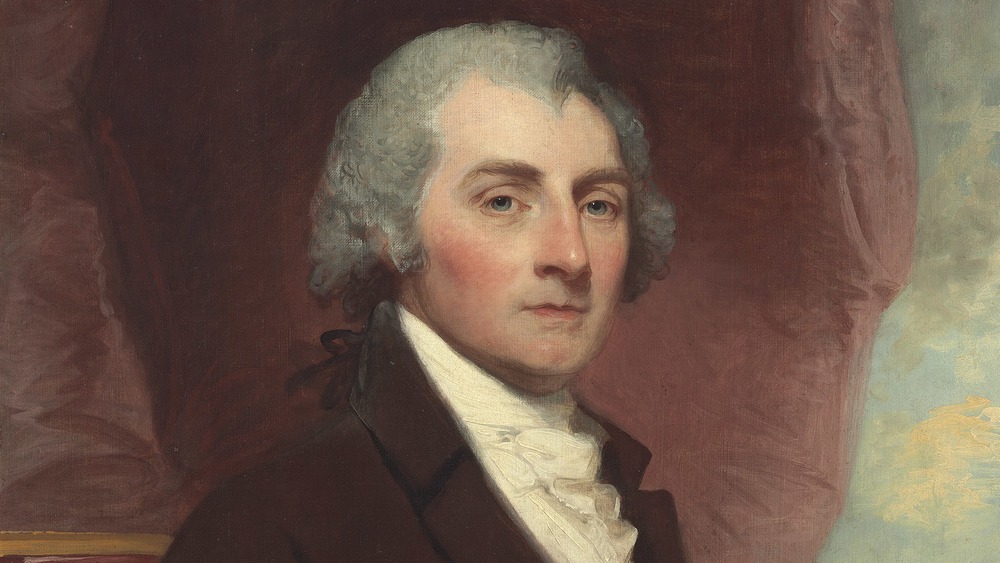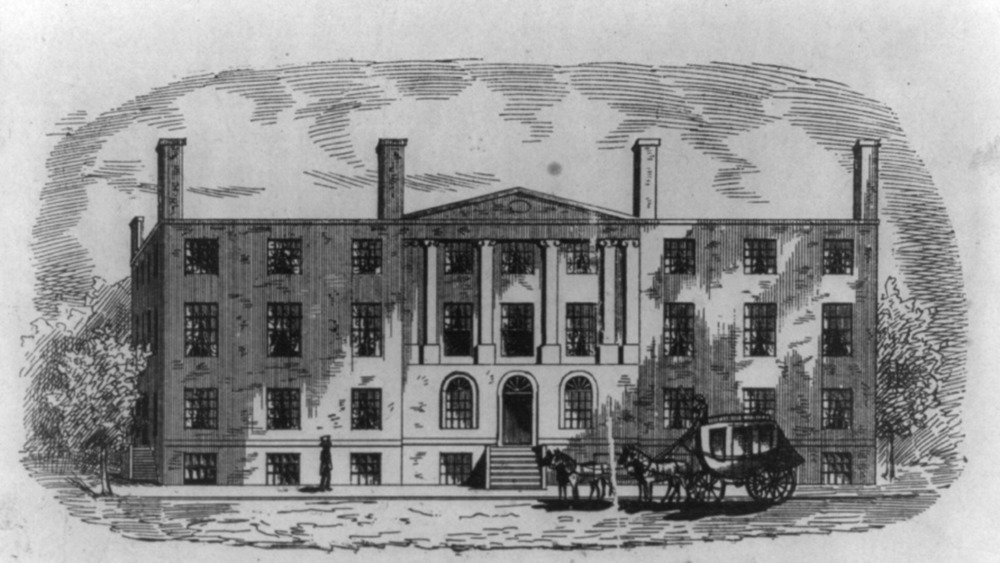How The Superintendent Of The U.S. Patent Office Became A Hero During The War Of 1812
Dr. William Thornton achieved national recognition in 1792, when, with no formal architectural training, he won a competition to design the new U.S. Capitol in Washington. He went on to design many prominent buildings throughout the city, including the Octagon House and Tudor Place, but architecture wasn't his only forte.
Thornton was also an inventor, with patents on items like steamboats, firearms, and stills, and in 1802, he was appointed as the first Superintendent of the U.S. Patent Office, according to Britannica. However, it wasn't until 1810 that a designated building was purchased to house the Patent Office. Congress authorized the conversion of the former Blodgett's Hotel, located on the north side of E Street, NW, into a government property, housing the Patent Office and the General Post Office, according to the U.S. Patent and Trademark Office.
However, while under Thornton's supervision, the very existence of the patent office was threatened by the British during the War of 1812. Following the American attack on York, Canada, the British retaliated in 1814 by razing Washington, D.C., torching the Capitol building, the White House, and almost every other significant government building in the city.
William Thorton saved the U.S. Patent Office from destruction during the War of 1812
They would have destroyed the new Patent Office as well, were it not for Thornton's singlehanded defense of the building. Placing himself directly in front of the loaded cannon the soldiers had aimed at the office, he declared: "Are you Englishmen or only Goths and Vandals? This is the Patent Office, a depository of the ingenuity of the American nation, in which the whole civilized world is interested. Would you destroy it? If so, fire away, and let the charge pass through my body," according to "A History of the Early Patent Office." Persuaded by his impassioned speech, the British soldiers retreated, and the Patent Office was spared.
Thornton served as superintendent until his death in 1828, but the remainder of his administration was not without controversy. He was known to discourage or turn down patent applications for inventions he claimed were copies, while granting patents freely to himself. He also at times named himself co-inventor on patents that he did not contribute to or that did not work, making his patent office legacy a bit of a mixed bag, to say the least.

